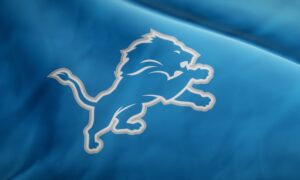This weekend is Super Bowl 58. The Kansas City Chiefs vs. the San Francisco 49ers. Patrick Mahomes vs. Brock Purdy. The genius of longtime coach Andy Reid vs. the mastermind Kyle Shanahan. Storylines abound in this rematch of the 2020 Super Bowl, as it pits two of the most successful NFL franchises ever against each other. The Chiefs have won three Super Bowls. The Niners have won five. Kansas City’s last win came last year at the expense of the Philadelphia Eagles. San Francisco hasn’t won since Steve Young quarterbacked them to victory 30 years ago. Between them, the two clubs have 53 Hall of Famers. In the annual ranking of NFL Franchise Success published by The Athletic, the Niners rank fourth all time while the Chiefs rank ninth. In short, neither of these clubs is a stranger to long-term sustained success.
It’s tempting to examine how these two teams arrived at the peak. How one overcame a struggling offense, an inexperienced receiving core, an aging tight end, and a QB playing from behind more this year than ever. And how the other overcame a QB with the mantle of “Mr. Irrelevant,” a frustrating rash of injuries, and some regularly questionable coaching decisions.
Both those stories are worth telling. And plenty of other people will tell them.
But as often happens in our work with leaders, examining the victors may be less fruitful than examining those who failed to advance. With that in mind, the AFC and NFC Championship games become fertile ground to explore what can happen when leaders fall back on their Reactive Tendencies instead of reaching for their Creative Competencies.
In times of great stress and pressure, how we show up matters. And knowing how we may show up in our Reactive Tendencies can be the difference between rising to a challenge or making it exponentially worse. Case in point: the Baltimore Ravens and the Detroit Lions, losers to the Chiefs and Niners, respectively.
Death by a Thousand Cuts

The Baltimore Ravens entered the AFC Championship game with, arguably, the most pressure of any of the final four playoff teams. Most of that pressure sat squarely on the shoulders of quarterback Lamar Jackson. The presumptive league MVP, Jackson is notorious for wilting in the playoffs. Yet, even with that hanging over his head, the Baltimore defense was widely considered the best in the league during the regular season, and the Ravens entered the game as favorites.
Jackson finished 20 of 37 for 272 yards, one touchdown, and one interception. Known for his ability to save failing passing plays with his legs, he ran for just 54 yards. Players on both sides of the ball committed boneheaded errors, including a 15-yard taunting penalty and a fumble at the goal line that cost the Ravens precious yardage and left points on the field. On top of that, Baltimore, who led the league in rushing during the regular season, rushed for only 81 yards against the Chiefs, who struggled to stop the run game all year. Despite leading early, the Ravens collapsed in the second half, losing 17-10 to Kansas City.
So, what was this? A case of the yips? Was the moment too big? The pressure too much? Perhaps.
Leaders internalize pressure in myriad ways. One of those ways, especially when facing pressure that feels overwhelming, is to lean on the Reactive Tendency of being driven. In the Leadership Circle Profile, the “driven” tendency measures the extent to which a leader is in overdrive, equating their self-worth with the need to perform at an impossibly high level.
Imagine you’re the quarterback of the top-seeded team in the NFL playoffs; your team is favored to win; you’re playing on your home field; you held out for and signed a lucrative contract this season; and you’re coming into the game with only two playoff wins in your six-year career. You might be feeling the need to perform. And not just perform but perform perfectly—a second Reactive Tendency (and one adjacent to “driven” on the LCP), measuring a leader’s need to succeed beyond all expectations, performing at constantly heroic levels.
Maybe Jackson felt he had to play a perfect game. Like there was no room for error. When a team leader tries to be perfect—whether they’re leading a football team or a business team—everyone on the team feels that pressure, and suddenly everyone’s Reactive Tendencies are heightened, the volume of self-limiting beliefs rising to a cacophony rivaling the loudest of home-field crowds.
Watching the Ravens abandon many of the behaviors and beliefs that powered their 13-win season was like witnessing a confident and capable leader crumble, clinging to old patterns and suffering the hits that accompany out-of-character behaviors. It’s in those situations that the leader, the team, and the whole enterprise loses. In a football game, it can tarnish legacies. In business, the consequences can be much worse.
Situation Critical

In contrast to the Ravens, the Detroit Lions held too tightly to the culture and identity built by Head Coach Dan Campbell in their 34-31 loss to the San Francisco 49ers.
A former tight end, Campbell is known in the league as a player’s coach. In an article for Sports Illustrated, sportswriter Collin Haalboom described Campbell’s style as a “hard-nosed, ultra-aggressive, work boots and lunch pail mentality that he not only exudes but speaks into existence.” In other words, he’s a charismatic tough guy and inspires the same in his players.
This identity manifested in a remarkable franchise turnaround that began when Campbell took the helm in 2021. The team’s magical 2023 season saw the Lions finish first in the NFC North with a 12-5 record and win back-to-back playoff games—after winning only one in the previous 56 seasons. Campbell’s reputation for going for it on fourth downs and re-lighting a fire under quarterback Jared Goff delivered a Lions offense that has been among the league’s best the last couple of years.
How then, did the Lions find themselves three points down when the clock hit triple zeros in the NFC Championship game? One contributor, the main contributor in my opinion, is that Dan Campbell didn’t play situational football.
Within the controlling dimension of the Leadership Circle Profile is the Reactive Tendency to be autocratic. This tendency measures the extent to which a leader may be forceful, aggressive, and controlling, particularly when they want to be seen as worthy of a high position. One of the ways to counteract this tendency is to be open to new information within a situation and respond accordingly. Effective leaders are nimble and, in fact, Campbell has proven himself to be a situational learner in numerous instances throughout his time as a head coach. But in this moment, in this game, he played to the culture and identity he had created instead.
Up by 14 in the first half, the Lions had an opportunity to kick a field goal on fourth down and take a three-score lead. They didn’t. In the fourth quarter, with the chance to kick a field goal and tie the game, Campbell decided to go for it on fourth-and-3 from the Niners 30-yard line. The pass was incomplete, and the Niners scored an insurance touchdown on the next drive, essentially putting the game out of reach for Detroit.
Was it arrogance? Was it inflexibility? No. It was the autocratic impulse left unchecked. Dan Campbell picked the worst time to be too aggressive, and it cost his team a trip to the Super Bowl.
Super Bowl LVIII
As for those two teams headed to Vegas on Sunday, I suspect the one that best manages its Reactive Tendencies will hoist the Lombardi Trophy at the end of the game. For the Niners, quarterback Brock Purdy and Head Coach Kyle Shanahan should beware of the temptation to play a perfect game. We learned from Lamar Jackson what can come from falling into that “perfect” tendency. Shanahan, for his part, usually scripts out the first dozen or so plays and can get pretty narrowminded about his gameplan. The Reactive Tendency of arrogance could be a challenge for him. For Andy Reid, Pat Mahomes, and our favorite Swiftie, Travis Kelce, the hard part may be avoiding the “passive” Reactive Tendency. The trio has been to 11 Super Bowls between them—two of which have been together. After an underwhelming season, Kansas City seems to have flipped the switch just in time for the playoffs. Will it be enough? Is the Super Bowl old hat? Can they keep the switch flipped for four more quarters? In short, can they be repeat as champions after playing a season at a less-than-championship level?
Conclusion
Reactive Tendencies emphasize caution over creating results, self-protection over productive engagement, and aggression over alignment. When we lean too far into them or rely too heavily on them, we limit our effectiveness as leaders.
Our best chance to mitigate these behaviors is to recognize how we show up when we lead, to understand the situations in which we might show up reactively, and to be prepared with action plans to counteract those reactive impulses. Maybe then, we’ll find ourselves playing in, and even winning, the big games.





